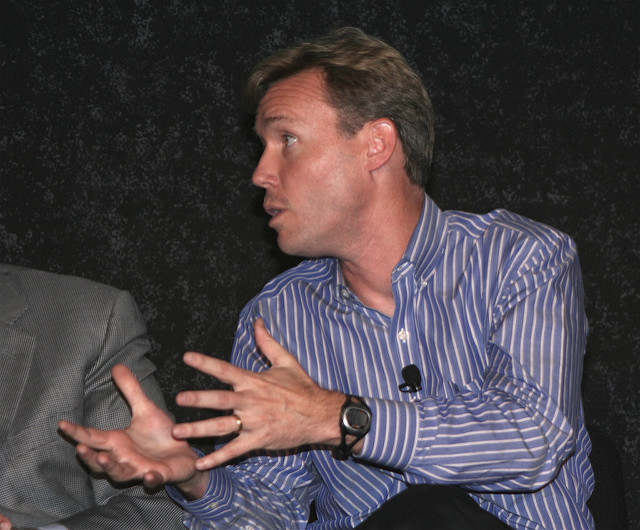
The website MP3tunes.com is long gone now, but a legal battle between the EMI record label and MP3tunes founder Michael Robertson slogs on. The site, created as a kind of digital music locker, shuttered in 2012, but EMI still pushed forward with its lawsuit. In 2014, following a jury trial, Robertson and MP3tunes were slapped with a verdict of $41 million plus punitive damages, finding the CEO personally liable for copyright infringement on the site. The judge later whittled damages down to $12.2 million, following post-trial motions. Both sides appealed elements of the judgment.
Now, Robertson has lost his best chance for a comeback. In an opinion (PDF) released yesterday, a panel of judges at the US Court of Appeals for the 2nd Circuit not only didn't clear MP3tunes of the copyright charges, it found that the district court had been too lenient when it found that some of the website's behavior was protected by the Digital Millennium Copyright Act's "safe harbor" provisions.
The DMCA provides a safe harbor from copyright lawsuits for websites that follow certain guidelines and assist copyright owners in stopping infringement. That includes having policies that terminate "repeat infringers," which MP3tunes did more than 150 times. EMI lawyers said that Robertson blew off other obvious infringers, but on that issue, the district court judge sided with Robertson, holding that users who used the website's "sideload.com" search engine to hunt for freely available MP3 files "for their personal entertainment" couldn't be repeat infringers.The appeals panel disagreed.
"All it takes to be a 'repeat infringer' is to repeatedly upload or download copyrighted material for personal use," wrote US Circuit Judge Raymond Lohier. "The legislative history of the DMCA indicates that a 'repeat infringer' does not need to know of the infringing nature of its online activities, or to upload rather than download content." And MP3tunes executives themselves personally downloaded songs using sideload, "from blatantly infringing websites," Lohier pointed out.
The findings by the court and jury that hurt Robertson, meanwhile, were upheld. The appeals panel upheld the jury's decisions (already approved by the district court) that Robertson had "red-flag knowledge" and exhibited "willful blindness" regarding songs that he sideloaded from personal storage sites and student-run college webpages, with URLs that record label lawyers called "obviously infringing."
Robertson also challenged the jury's decision to hold him personally liable for copyright infringement. Again, the appeals court sided with the jury and the lower court and against the founder. The judges wrote:
Robertson personally encouraged his employees to sideload songs to add to the index. Many of those songs were from sites that contained "pirated material." The entire point of sideloading to the index was to make more music available for user download—even though Robertson knew the music was generally not available for free in MP3 form.
In Sony Corp v. Universal Studios, the Supreme Court opinion better known as the Betamax decision, the high court held that a manufacturer can't be liable for how a product is used when the product has "substantial noninfringing uses." But the 2nd Circuit panel considered that in light of the 2000 Grokster decision, which said that in cases where evidence "shows statements or actions directed to promoting infringement," the Sony case isn't a total defense. In the appeals court's view, Robertson "acted in a manner intended to promote infringement."
Robertson's lawyer declined to comment on the decision but said he and his client are considering petitioning for a rehearing or a Supreme Court hearing.
EMI was broken up in 2012, with its main record business acquired by Universal and much of its music publishing business owned by Sony.
"We are gratified the Court reinstated the jury’s verdict finding the defendants were willfully blind to the rampant infringement on their website," Andrew Bart, a lawyer representing the various EMI-connected companies that are plaintiffs in the case, told Ars in an e-mail. "Significantly, the Court agreed with our position that an ISP forfeits its DMCA safe harbor protections when it is willfully blind to repeat infringement, including by failing to track users who upload or copy infringing files identified on takedown notices."
While MP3tunes is history, the case will be relevant to what other digital media companies can or can't do going forward. There aren't many cases that have been so heavily litigated about what kind of behavior disqualifies a website from the DMCA "Safe Harbor."
reader comments
31